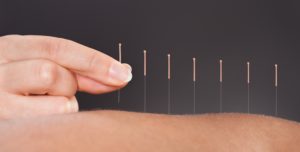Here’s a link to a fascinating meta-analysis of the effectiveness of acupuncture in the treatment of chronic pain, controlling for some of the dodgy and unscientific ‘studies’ out there.
In this article, the outcomes of the study are listed and discussed, and it’s good news for acupuncturists.
‘When comparing legit acupuncture to standard care, there was a statistically significant benefit to acupuncture … “We saw a measurable effect there,” he explains. “If acupuncture were a drug, we’d say the drug works.”’
…and later, in relation to the placebo effect:
‘Many people equate placebo effects with scams. “The term placebo has always had this very negative connotation,” says Vitaly Napadow, director of the Center for Integrative Pain Neuroimaging at Harvard Medical School. But Napadow says our poor opinion of placebo needs revising. The human body has built-in systems for stoking or calming pain and other subjective sensations. “If a placebo can target and modulate these endogenous systems, that’s a good and a real thing,” he says.’
Meanwhile, in two comprehensive studies into the value of acupuncture treatment in treating women’s health issues, we see mixed results.
‘These studies shed new light on when and when not to consider using acupuncture,” Dr. Josephine Briggs and David Shurtleff, of the U.S. National Center for Complementary and Integrative Health, wrote in an editorial to accompany the studies.
The research done to date on acupuncture has shown that, generally, its benefits are limited to outcomes that are subjective, such as pain, Briggs and Shurtleff wrote. People’s positive expectations and the reassurance they feel from the procedure likely contribute to the benefits. “Clearly these ancient practices are helping reveal the complexity of the links between the mind and the body,” the editorial said.’


